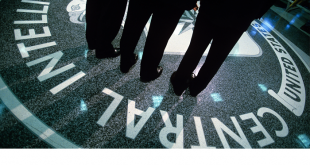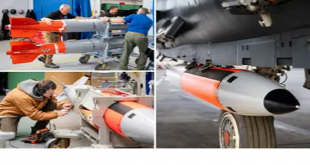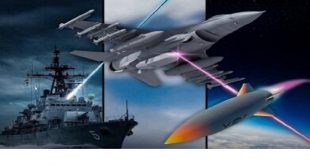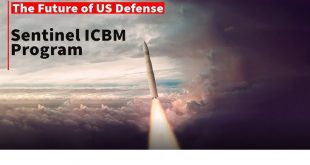War and globalization go hand in hand. The process of militarization calls for the imposition of macro-economic restructuring in the target countries. It demands military spending to sustain the war economy, to the detriment of the civilian economy. This leads to economic destabilization and a loss of power for national institutions.
On April 7, the Anti-NATO International Conference on the 70th Anniversary of NATO was held in Florence, with more than 600 participants from Italy and Europe. The keynote speaker was Prof. Michel Chossudovsky, the director of Global Research, a Canadian research center on globalization, which co-sponsored the conference along with the No War No NATO Committee and other Italian NGOs.
Chossudovsky is one of the leading international experts in economics and geopolitics, a contributor to the Encyclopedia Britannica and the author of 11 books, his writings have been published in over 20 languages.
Manlio Dinucci: What has been achieved at the Florence conference?
Michel Chossudovsky: It was a very successful event, with the participation of highly qualified speakers from the US, Europe and Russia. There were presentations on NATO’s history. Its crimes against humanity were highlighted and carefully documented. At the end of the conference, we published the Florence Declaration, which calls for an exit from the war system.
Manlio Dinucci: In your introductory address, you said that the North Atlantic Alliance was not an alliance at all.
Michel Chossudovsky: Under the guise of a multinational military alliance, the Pentagon is dominating NATO’s decision-making mechanism. The US controls NATO’s command structures, which are integrated into those of the US. The Supreme Allied Commander in Europe (SACEUR) is always an American general named by Washington. The NATO Secretary-General, currently Jens Stoltenberg, is essentially a bureaucrat who deals with public relations. He has no decision-making role.
Manlio Dinucci: Another issue you have raised is that of the US military bases in Italy and other European countries, including Eastern Europe, despite the Warsaw Pact having collapsed in 1991 and despite the promise made to Gorbachev that there would be no NATO enlargement towards the East. Why are they there?
Michel Chossudovsky: NATO’s unspoken aim—a prominent topic of our debate in Florence—has been to implement a de facto “military occupation” of Western Europe, in all but name. Not only does the United States continue to “occupy” the former “Axis countries” of the Second World War (Italy and Germany), but under the guise of the NATO flag, it has installed military bases in all of Western Europe, and, later on, in Eastern Europe as well, in the wake of the Cold War, and in the Balkans, in the wake of the NATO war against Yugoslavia (Serbia-Montenegro).
Manlio Dinucci: What has changed when it comes to a possible use of nuclear weapons?
Michel Chossudovsky: Immediately after the Cold War, a new nuclear doctrine was formulated, focused on the preemptive use of nuclear weapons, meaning a nuclear first strike as a means of self-defense. As part of the US-NATO interventions, framed as peacekeeping actions, a new generation of “low yield” and “more usable” nuclear weapons has been developed, which have been mischaracterized as “harmless to civilians.” US policy makers consider these to be “pacifying bombs.” The agreements of the Cold War, which put up certain restrictions against such weapons, have been abandoned. When it comes to the use of nuclear weapons, the concept of “Mutual Assured Destruction” has been abandoned in favor of the doctrine of preemptive nuclear war.
Manlio Dinucci: Earlier in Trump’s presidency, he had called NATO ”obsolete”—now, however, it has been embraced again by the White House. What is the relationship between the arms race and the economic crisis?
Michel Chossudovsky: War and globalization go hand in hand. The process of militarization calls for the imposition of macro-economic restructuring in the target countries. It demands military spending to sustain the war economy, to the detriment of the civilian economy. This leads to economic destabilization and a loss of power for national institutions.
As an example: recently, President Trump has proposed large cuts in health, education and social infrastructure spending, while calling for a large increase in the Pentagon’s budget. Early in his administration, President Trump approved an increase in spending for the military nuclear program—an initiative launched by Obama—from $1 trillion to $1.2 trillion, under the pretext that it would help keep the world safe.
Throughout the European Union, the increase in military spending, coupled with austerity measures, is leading towards the end of the “welfare state” as we have known it. Now, under US pressure, NATO is committed to increasing its military spending, and Secretary-General Jens Stoltenberg recently said that this is the right thing to do in order to “keep [our] population safe.” Military interventions come together with concomitant acts of economic sabotage and financial manipulation.
The final aim is the taking over of resources, human and material, and of political institutions. The acts of war are taking place to support a process of complete economic conquest. The US’s hegemonic project is that of transforming sovereign countries and independent international institutions into structures that are receptive towards infiltration. One of the tools for achieving this is the imposition of highly restrictive constraints on indebted countries. That, together with the imposition of deadly macroeconomic reforms, is leading to the impoverishment of a large proportion of the global population.
Manlio Dinucci: What is the role of the media in all this—and what should it be doing instead?
Michel Chossudovsky: Without media disinformation and propaganda, the US-NATO military agenda would collapse like a house of cards. However, the impending dangers of a new war using the most modern weaponry and the danger of the use of nuclear weapons are not being treated as front page news. Outright war is depicted as a peace-making initiative.
War criminals are portrayed as peacemakers. War becomes peace. The lie becomes the truth, The truth is twisted into its opposite. When the lie becomes the truth, there is no turning backwards.
By: Global research.ca
 Tehran Institute For International Studies tiis
Tehran Institute For International Studies tiis



